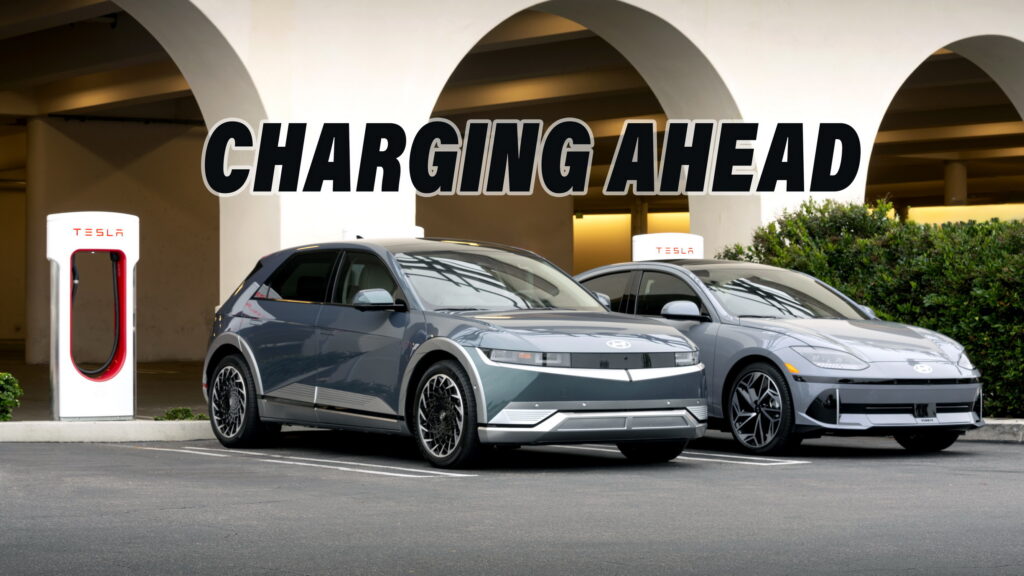The world of electric vehicle charging statistics is a bit of a wild west, and most of us only hear what automakers want to tell us. In response, Edmunds has initiated the development of a new testing methodology with the aim of establishing an industry-standard for measuring charging speed. Hyundai’s technology has emerged as the top performer in this endeavor.
The test looked at more than 40 EVs, with the help of automotive consultant, the P3 Group. Together, they measured energy transfer times at Level 3 fast-charging stations, with a focus on batteries between a 10 and 80 percent state of charge.
And the results were clear, Hyundai Motor Group’s technology should be the envy of the industry. Edmunds found that the Hyundai Ioniq 6 Limited RWD (single motor) was the fastest vehicle in the test, recovering 868 miles (1,397 km) per charging hour. It was also the quickest to recover 100 miles of range, at just 6:54.
Top 5 Fastest Charging EVs
Read: These Are The 10 Shortest-Range New EVs In America
Interestingly, among the top six fastest-charging vehicles in the test, five were manufactured by Hyundai or its sister brand, Kia. The only exception was the 2020 Porsche Taycan 4S, which achieved a charging speed of 690 miles (1,110 km) per hour and secured the fourth position in the test, preventing a complete top five domination by the Korean group.
The 2022 Mercedes EQS 450+ just barely cracked the top 10, with an average rate of 593 miles (954 km) per charging hour, as did the 2023 Genesis Electrified G80 (588 mi/hour), and the 2022 Porsche Taycan GTS (584 mi/hr). Meanwhile, Tesla only had one vehicle in the top 10, the Model 3, which managed to recover 569 miles (916 km) per charging hour in this test.
Meanwhile, American manufacturers were disproportionately represented among the slowest vehicles. The 2022 Chevrolet Bolt EUV Premier was the slowest (172 mi/hr), and was joined by the 2022 Chevrolet Bolt (179 mi/hr), the 2022 Ford Mustang Mach-E GT Performance (257 mi/hr), the 2023 Ford Mustang Mach-E Premium AWD (294 mi/hr), and the 2022 Rivian R1S Launch Edition (312 mi/hr), as the slowest vehicles in the test.
“Our data reaffirms the importance of combining fast charging and a highly efficient vehicle for the best EV experience,” said Weaver. “There are some fascinating results within our debut measurements, and it’s reassuring to note that even shoppers who aren’t investing in luxury brands can still enjoy industry-leading EV technology.”




